TABLE OF CONTENTS
Best Bahian Foods
MAIN INGREDIENTS
A classic dish of the Brazilian Bahia region, bobó de camarão is a stew made with puréed cassava (bobó), fresh shrimps, coconut milk, and dendê palm oil. The word bobó comes from the Ewe people who were brought to Brazil as slaves, denoting a dish made with beans, although there are no beans in bobó de camarão as we know it today, due to the fact that the Afro-Brazilians enthusiastically took to cassava when they were first introduced to it.
The dish is traditionally accompanied by rice on the side, and is a staple of most traditional Brazilian eateries and Bahian self-service restaurants.
MAIN INGREDIENTS
Moqueca Baiana is a seafood stew originating from the Brazilian state of Bahia, hence the word Baiana in its name. It consists of white fish, shrimps, or other seafood combined with coconut milk, dendê oil, lime juice, and various vegetables such as red and yellow peppers, tomatoes, spring onions, garlic, onions, and sometimes ginger.
When done, the dish is typically garnished with chopped coriander, then served with rice and farofa. This seafood stew was originally prepared by the native people of Brazil. Over time, new elements were added to the stew, such as coconut milk, which was first introduced to Brazil by Portuguese colonists, and palm oil, which was brought over to the country by African slaves.
OTHER VARIATIONS OF Moqueca
MOST ICONIC Moqueca Baiana
View moreRich, substantial, and tropically flavored - vatapá is one of the most famous Brazilian dishes, a main course consisting of a combination of stale bread, fish (usually cod), shrimp, coconut milk, manioc flour, dendê palm oil, and cashews.
The dish is often consumed with white rice, or as a filling for acarajé fritters, another popular Brazilian dish. Bright yellow in color, vatapá is a specialty of Bahia, a state on the country's northeastern coast that is heavily influenced by the West Africans who were brought to the country as slaves.
MAIN INGREDIENTS
In Bahia, the northeastern state of Brazil, there is a dish that is considered to be the most popular street food around, called acarajé. It consists of black-eyed peas or cowpeas that are formed into a ball, deep-fried in dendé palm oil, split in half, then stuffed with flavorful, spicy pastes made from numerous ingredients such as cashews, palm oil, and shrimp.
The most common accompaniments to the dish include a tomato salad and homemade hot pepper sauces. The recipe for the dish originated during the colonial period of the country, from the Nigerian slaves who first started selling it on the streets of Brazil.
MAIN INGREDIENTS
A specialty dish from the Brazilian regions of Pará and Bahia, maniçoba is a part of the feijoada family of Brazilian dishes. In addition to dried meat, salted pork, bacon, and sausages, chopped cassava leaves are used instead of beans which are commonly used in a traditional feijoada.
One must be extra careful when preparing the dish due to the toxic cyanides found in cassava leaves, which is why they need to be ground and boiled for at least one week in order to remove the toxins. Since it is a lengthy process, maniçoba is mostly prepared for festivities and religious celebrations, when it's consumed by large groups of people.
OTHER VARIATIONS OF Feijoada à portuguesa
MAIN INGREDIENTS
Abará is a popular Brazilian snack consisting of black-eyed peas or beans that are mashed into a paste, then steamed in a banana leaf. The dish is very similar to another Brazilian snack, acarajé, which is fried instead of being boiled or steamed.
Black-eyed peas are a staple of traditional Brazilian cuisine, especially in the Bahia region, the center of Brazil's Afro-Brazilian culture. Abará is closely associated with Candomblé, an Afro-Brazilian religion where it is one of the ritual foods offered to the gods and goddesses (called the Orixás) during the ceremonial festivities.
MAIN INGREDIENTS
Quindim is a traditional coconut custard cake made with sugar, egg yolks, and ground coconut. The most popular theory about the origin of the dish suggests that it was invented in the 17th century in the northeast of Brazil by African slaves. However, the excessive usage of egg yolks indicates possible Portuguese roots of the dish, since Portuguese cuisine traditionally uses large amounts of egg yolks.
The name quindim stems from the Bantu language, roughly translated to the unusual phrase "the gestures of adolescent girls". Today, quindim is one of the most popular desserts in Brazil, often consumed at birthdays, weddings, and christenings.
MAIN INGREDIENTS
Caruru is a Brazilian dish consisting of okra, dried shrimps, onions, and toasted nuts cooked in dendê palm oil. In the Bahia region, caruru is traditionally consumed as a condiment alongside acarajé, a type of street food consisting of fried black-eyed peas.
Although the dish has African origins, it is considered to be a Brazilian dish which was exported out of Africa by the slaves who worked on sugar plantations in Brazil. Caruru is a staple of Afro-Brazilian religious ceremonies, where it's known under the name amalá, and it is a favorite of Xango, the Yoruba African god of fire.
MAIN INGREDIENTS
Acaçá is a traditional Afro-Brazilian dish that's the most important ritual food of the Candomblé religion. This thick mush-like dish is made from ground or grated white corn that's soaked, pounded, then wrapped and shaped in banana leaves.
The Candomblé religion originated in Bahia, and that's where you can find this specialty. The flavor of acaçá is somewhat bland and neutral because it only contains white corn and salt. It's usually served with dishes that contain some kind of sauce in order for acaçá to absorb its flavors.
TABLE OF CONTENTS
Best Bahian Food Producers
AWARDS

World Beer Awards - Gold
2023
BEST Proa Cervejaria Beers
AWARDS
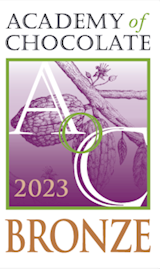
Academy of Chocolate - Bronze
2023
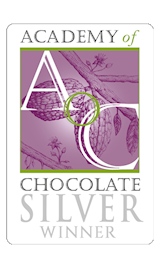
Academy of Chocolate - Silver
2024
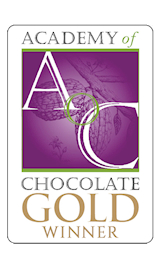
Academy of Chocolate - Gold
2024
BEST Kaê Chocolates Chocolates
AWARDS

Academy of Chocolate - Bronze
2024, 2023

Academy of Chocolate - Silver
2024

Academy of Chocolate - Gold
2024
BEST Ju Arléo Chocolates Chocolates
AWARDS

Academy of Chocolate - Silver
2024
BEST Modaka Cacau Chocolates
Tombador Cacau is a family-owned chocolate producer based in Valença, Bahia, Brazil. The company is known for its premium, single-origin chocolate made from high-quality cocoa beans grown on the Fazenda Saudade farm, located in the Tombador II region, near the Jiquiriçá River.
Tombador Cacau is committed to sustainability and quality, producing chocolates that highlight the unique flavors of the Bahia region. Their products are celebrated for their rich, pure taste, with some varieties containing up to 100% cocoa, offering a true, unadulterated chocolate experience.
AWARDS

Academy of Chocolate - Silver
2024
BEST Tombador Cacau Chocolates
Benevides Chocolates Finos, located in Itabuna, specializes in fine chocolates utilizing locally sourced cacao from the Bahia region of Brazil. The company produces a variety of chocolate products, emphasizing traditional methods and sustainable practices.
They are particularly noted for their craft chocolate bars that highlight the distinctive flavors of the region’s cacao beans.
AWARDS

Academy of Chocolate - Bronze
2024, 2023, 2022
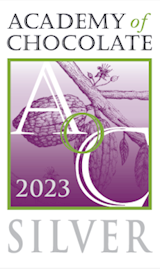
Academy of Chocolate - Silver
2024, 2023
BEST Benevides Chocolates Finos Chocolates
Mendoá Chocolates, based in Salvador, specializes in producing premium chocolates by utilizing cocoa sourced from sustainable plantations in the Bahia region of Brazil. They focus on bean-to-bar processes, emphasizing the unique flavors and qualities of Brazilian cocoa.
Mendoá Chocolates also invests in local communities by supporting sustainable agricultural practices among its cocoa suppliers.
AWARDS
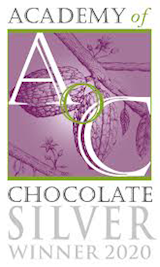
Academy of Chocolate - Silver
2020

Academy of Chocolate - Bronze
2023, 2020, 2019, 2018
BEST Mendoá Chocolates Chocolates
Amma Chocolate Orgânico, based in Salvador, Brazil, specializes in organic chocolate, crafted from locally sourced cacao. The company maintains a focus on sustainability and environmental responsibility throughout its production processes. It employs traditional methods, including fermentation and sun-drying, to enhance the flavors of their chocolate products.
Amma Chocolate Orgânico works closely with local farmers to ensure high-quality, organic ingredients.
AWARDS

Academy of Chocolate - Silver
2017, 2016

Academy of Chocolate - Bronze
2019, 2017, 2016
BEST Amma Chocolate Orgânico Chocolates
AWARDS

Academy of Chocolate - Bronze
2023

Academy of Chocolate - Silver
2024, 2023
BEST La Lis Chocolates Chocolates
TABLE OF CONTENTS
Best Bahian Food Products
Kaê Cumaru - 55% com Cumaru is a smooth and aromatic milk chocolate infused with Cumaru, also known as "Brazilian tonka bean." This unique ingredient adds warm, vanilla-like notes with hints of almond and spice, enhancing the richness of the 55% cacao blend.
A delicate balance of sweetness and complexity, perfect for an indulgent experience.
AWARDS

Academy of Chocolate - Gold
2024
AWARDS

Academy of Chocolate - Gold
2024
AWARDS

World Beer Awards - Gold
2023
AWARDS

World Beer Awards - Gold
2023
AWARDS

World Beer Awards - Gold
2023
AWARDS

Academy of Chocolate - Silver
2024, 2023
AWARDS

Academy of Chocolate - Silver
2023
Orgânico 99% Cacau com Nibs by Mendoá Chocolates is an artisanal chocolate product. It is made from 99% pure organic cocoa, providing an intense and rich chocolate experience. The inclusion of cocoa nibs adds a crunchy texture and depth of flavor, enhancing the overall taste profile.
This chocolate bar is geared towards chocolate purists and those who appreciate the robust flavor of unadulterated cocoa.
AWARDS

Academy of Chocolate - Silver
2020
Amma Chocolate 100% is a product produced by Amma Chocolate Orgânico. This chocolate bar is made entirely from organic cocoa, ensuring that it contains no sugar or other additives. As a result, it offers a very pure and intense chocolate experience, which is favored by chocolate purists and those looking for a high-potency cocoa product.
The company behind this product, Amma Chocolate Orgânico, is known for its commitment to sustainability and the use of high-quality organic ingredients, sourced from environmentally responsible farms.
AWARDS

Academy of Chocolate - Silver
2017
AWARDS

Academy of Chocolate - Silver
2024
TasteAtlas food rankings are based on the ratings of the TasteAtlas audience, with a series of mechanisms that recognize real users and that ignore bot, nationalist or local patriotic ratings, and give additional value to the ratings of users that the system recognizes as knowledgeable. TasteAtlas Rankings should not be seen as the final global conclusion about food. Their purpose is to promote excellent local foods, instill pride in traditional dishes, and arouse curiosity about dishes you haven’t tried.






















































